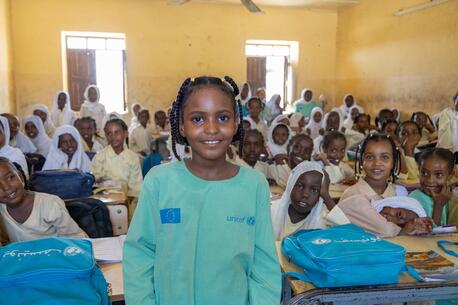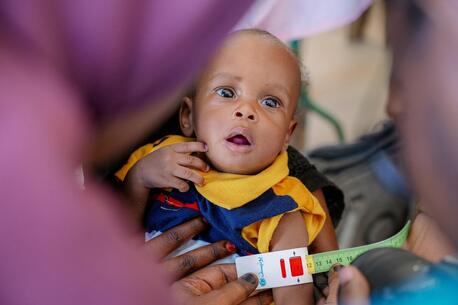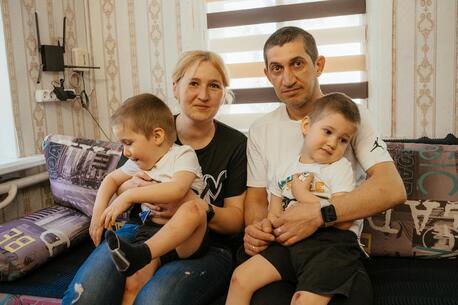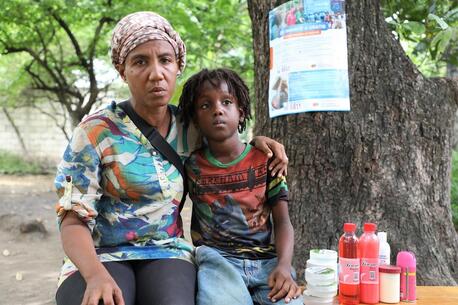
Cash Transfers Boost Hopes and Businesses in Haiti
Even as violence continues, UNICEF-supported cash transfers are helping families make ends meet.
Armed violence in Port-au-Prince has triggered a massive population movement; more than 578,000 people have been forced out of their homes, including 300,000 children
LÉOGÂNE, Haiti – Ongoing violence is taking a devastating toll on communities in Haiti, particularly the hundreds of thousands of people who have been internally displaced. Livelihoods have been destroyed. Essential services have been starved. Humanitarian assistance has been obstructed.
As a result, hunger and life-threatening malnutrition are at record levels across the country, concentrated in some of the most insecure and congested neighborhoods. More and more parents are struggling to provide the care, nutritious food and other support that their children need.
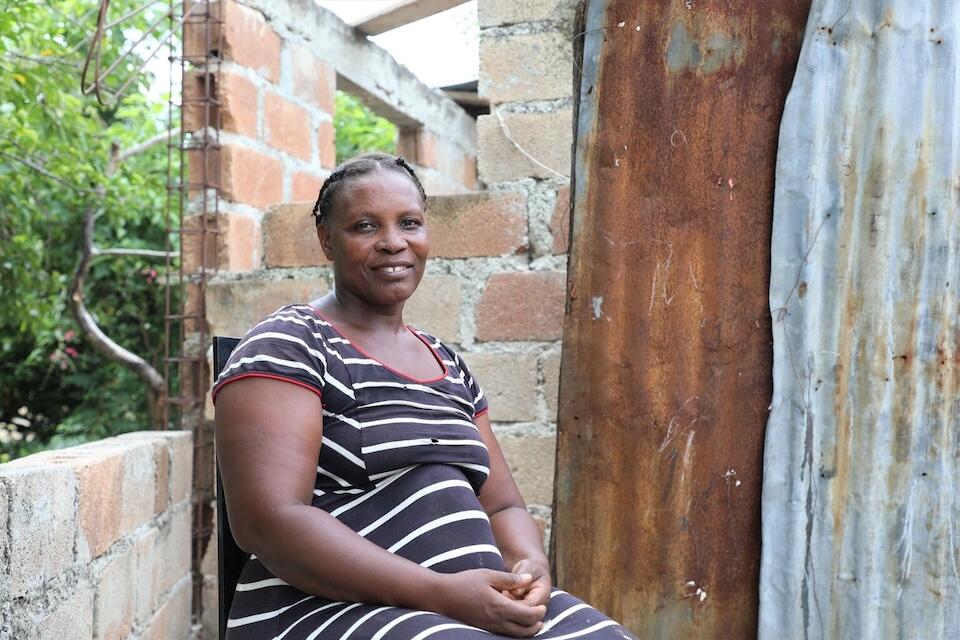
Humanitarian cash transfers are a cost-effective way to help families meet their basic needs and restart their livelihoods
As part of its response in Haiti, UNICEF is providing humanitarian cash transfers. The transfers are a cost-effective way of quickly getting support to those who need it most and have been a lifeline for families grappling with upheaval and violence. They also empower people to make decisions based on their individual situation, allowing recipients to meet their basic needs and restart their livelihoods in a dignified way.
Bien Aimé, a mother of six who has taken refuge in Léogâne, a coastal commune in western Haiti, is one such recipient.
“I fled with my children when armed groups attacked our neighborhood,” Bien Aimé says. “We had to flee on foot, covering long distances to find somewhere safe.”
The family initially found shelter at a site for internally displaced persons, but the cash transfer Bien Aimé received was enough for her to rent her own room. Meeting the family’s day-to-day needs is still a challenge, so for the moment her children are staying with her mother. “But my community helps me get by," says Bien Aimé. "If the situation in [the town of] Gressier improves, I hope to be reunited with my children and to return to my small business selling chickens.”
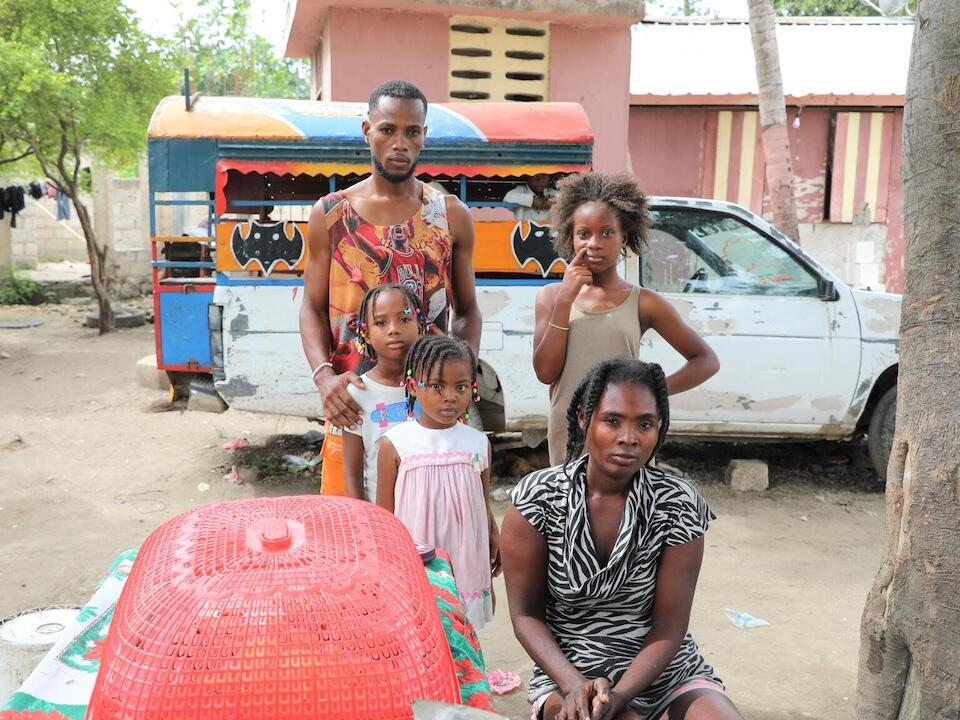
Hope for the future
Pierre, a father of four, has also benefitted from cash assistance after being displaced three times since violence erupted.
Two weeks after receiving the money, Pierre and his wife opened a small business selling fries and soft drinks at a site for displaced people.
“The money allowed me to start a business. It helps us meet some of our biggest needs,” Pierre says, adding that he hopes to return to Port-au-Prince if the situation there improves.
Carole, a mother of twins, lost her husband during an armed attack. She lived under a bridge for a while before eventually finding refuge in Léogâne. “Life has become very difficult,” she says. “Before, I sold cosmetics in a store, but now I’m forced to sell goods in the streets to feed my children,” she says, adding the store was destroyed in the violence.
Thanks to a UNICEF-supported cash transfer, Carole has been able to start a small street business selling cosmetics. “I’m currently a street vendor in Léogâne. My business helps me meet my children’s basic needs,” she says.
Carole hopes conditions in the country will improve so her children can access a quality education.
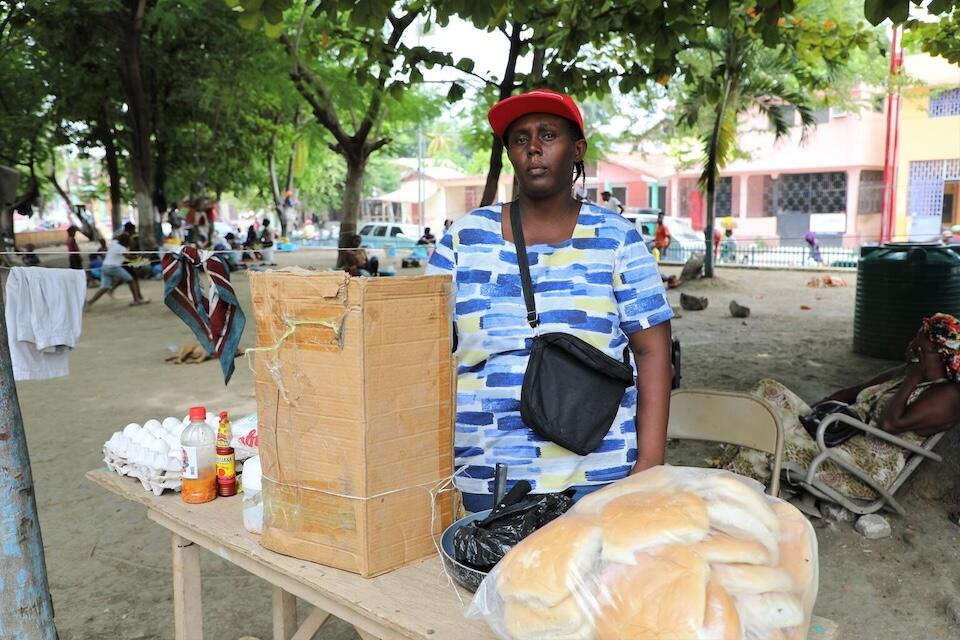
Rosemirienne, 41, used to sell clothes in Gressier, but her life was upended by spiraling violence and she and her children were forced to flee to a site for displaced people in Léogâne.
“With the cash I received, I was able to start a small business selling bread, eggs, fruits, water and soft drinks,” she says. “It’s a modest business, but it allows me to feed my family.”
It's a modest business, but it allows me to feed my family. — Rosemirienne, mother of nine
UNICEF's cash transfers, which are being rolled out in three phases, have already played a crucial role in providing immediate relief to displaced families in Haiti, enabling them to start rebuilding their lives as they look forward to a better future.
Humanitarian cash transfer programs are a quick, efficient way of getting support to those who need it most. In the longer term, cash transfers can also build households’ resilience, strengthening their ability to better cope with shocks and reducing vulnerability to future crises.They can be used to help with education costs, providing vital support that helps children attend classes and ensures they can be part of building a brighter future.
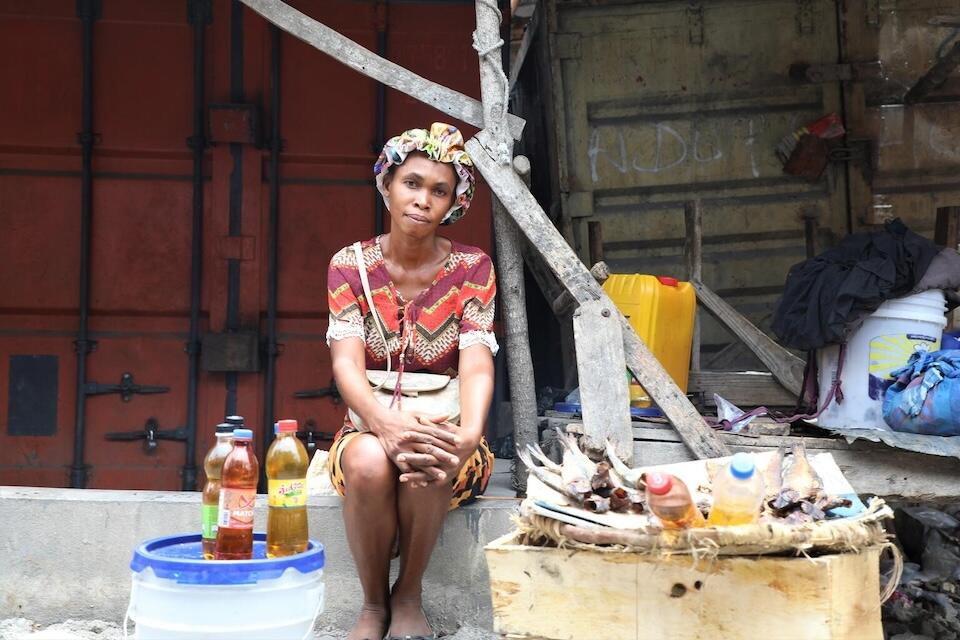
For parents like Julenasse, a mother of three, that two-pronged benefit is already helping her plan for a better future for her family. Julenasse used to have a small business in Gressier that allowed her to support her family, but she was forced to flee to Léogâne as the violence spread.
“With the money I received, I’ve been able to sell food like rice and cornmeal. I even invested some of it in a fund with other vendors,” she says. “I hope this business will allow me to find a house where I can live with my children.”
Support UNICEF. Please donate today.
Read UNICEF Haiti's latest situation report.
This project is financially supported by the Bureau for Humanitarian Assistance and the Swedish International Development Cooperation Agency.
This story was originally published on unicef.org
HOW TO HELP
There are many ways to make a difference
War, famine, poverty, natural disasters — threats to the world's children keep coming. But UNICEF won't stop working to keep children healthy and safe.
UNICEF works in over 190 countries and territories — more places than any other children's organization. UNICEF has the world's largest humanitarian warehouse and, when disaster strikes, can get supplies almost anywhere within 72 hours. Constantly innovating, always advocating for a better world for children, UNICEF works to ensure that every child can grow up healthy, educated, protected and respected.
Would you like to help give all children the opportunity to reach their full potential? There are many ways to get involved.



